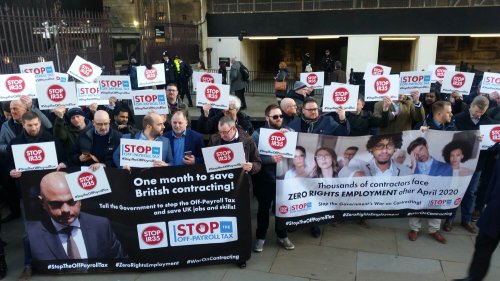IR35 is likely to be something you have heard about as changes were due to come into effect from last year. It was delayed, but the changes will come into effect from 6 April 2021. It is important to note that if your business meets the criteria to be categorised as a small business, these changes will not apply to you. Read on to find out more……
What is IR35 all about?
Off-work payroll working rules, or IR35 as it is better known, centres around “off-payroll” workers and who is responsible for paying income tax and national insurance for them. The rules around this were introduced to make sure that those working in a business as though they an employee pay broadly the same employment taxes as actual employees. The rules will apply to any person or organisation working in a business which is not categorised as a small business for IR35 purposes.
What actually changes in April 2021?
Currently the responsibility sits with those carrying out work to determine whether they are in employment or not with a business they provide services to. This would be determined by things such as whether a substitute can be sent to deliver the work, who provides equipment to be used and whether those carrying out the work are obliged to accept it.
From April 2021, responsibility will shift to the employer to determine whether the work being done falls in or out of IR35 rules, if it falls within IR35 the employer becomes responsible for income tax and National Insurance contributions.
Do the new rules apply to ALL businesses?
The short answer to this is no - the rules won’t apply to small organisations. Businesses (or a corporate group of businesses) who meet two or more of these criteria will need to comply with the new rules:
- Annual turnover of more than £10.2million
- Balance sheet of over £5.1 million
- More than 50 full time (or equivalent) employees.
If you do not meet 2 or more of these criteria you are considered a small business for this purpose and the changes will not apply to you – you will need to reassess yourself against these measures each year to check whether you still remain in the small business category.
If I meet 2 or more of these criteria, what do I need to do?
You will need to review each off-payroll worker in your business to determine whether the work they carry out falls in or out of IR35. If they are deemed to be outside IR35 then you will not need to take any action.
For those you determine to be in the scope of IR35, you must inform them firstly that you believe IR35 applies to them and advise them of the reasons why. You should also give them the right of appeal against that decision in all cases.
No invoice payments should be made in respect of work carried out by those within the scope of IR35 after 6 April 2021, even if the work was carried out earlier.
Steps you can take now:
1 – Determine whether your business meets the definition of a small business for IR35 purposes. If it does, you need take no further action.
2 – If you are not classed as a small business, identify someone in your business to assess your off-payroll workers to carry out a review of whether the work they carry out falls in or out of IR35 and communication the decision made on this.
3 – Decide how you will deal with any appeals from for off payroll workers who you believe fall within IR35 to ensure you can still meet the deadline set.
I hope this article is useful to help you understand what IR35 is all about, when it is happening an whether it applies to your business or not.
I appreciate that it may be challenging in some cases to determine whether your off payroll workers are in or out of the scope of IR35. If you would like to discuss this topic further please get in touch by email at kat@blackkat-hr.com to arrange a confidential exploratory conversation so that you can be sure you have everything in place you need to meet with the new regulations.

